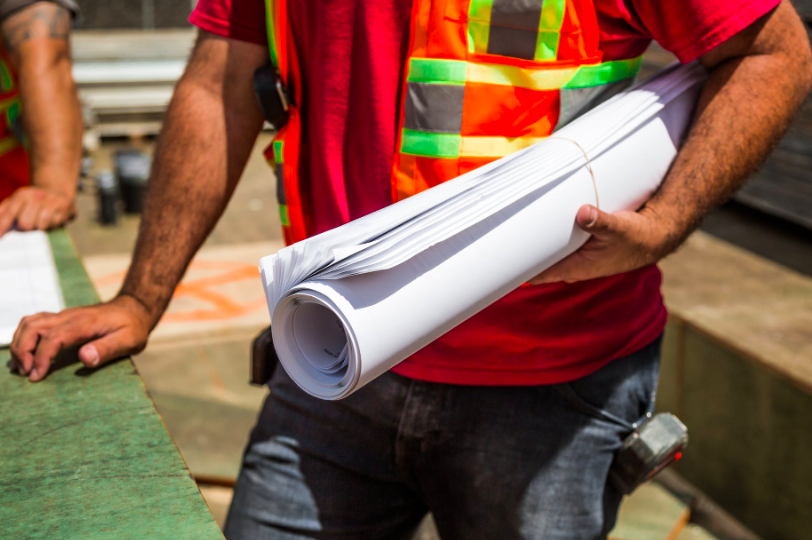In a dimly lit restaurant, our clients and vendors rubbed elbows at one of our networking events in Florida. Our associate that was responsible to vetting contractors brought me a gentleman that proclaimed that he and his business partner would be the best contractor that we ever had if only we would give them a chance. Our associate spoke highly of him, so I gave them three of our renovations to see how they did.
You see, I have a tendency to show up at job sites unannounced to review the work that our vendors are providing us. Normally, all is well on my impromptu inspection visits. On one day, however, I was so horrified that I had my associate that vetted the contractor in the phone shortly after walking into the homes living room. I could see several code violations and incredibly sloppy craftsmanship. I immediately drove to the two other properties that were entrusted to this new contractor and I discovered similar work. One of my biggest concerns, however, was that I didn’t encounter a soul in any of the three properties. Where were they and what were they doing? Needless to say, I was forced to remove that contractor from the three jobs and bring in another contractor that we were more comfortable with.
Hiring and supervising contractors is one of the greatest challenges that face a real estate-related investor. Finding a good contractor is hard…really hard. It seems as if once you find a good contractor, they get too busy and raise their pricing. Let’s talk about ten things that you can do to properly check out a contractor in this day and age.
- Check Licensing: Any contractor should hold the appropriate licenses for the role that you are asking them to play. Most jurisdictions have on line search tools to ensure that the contractor that you are thinking about hiring is properly licensed to do the work you expect.
- Recommendations: Search your address book for folks that can recommend good contractors to you. Ask those people what they know about the contractor, what type of work they did and how well they performed? Did they do good work? Did they do exactly what was expected? Did they deliver on time and on budget? Did they clean up well and were they respectful of your property? Getting recommendations from those you trust can help you find honest, hard working contractors better than anything else you can do.
- Investigate: When you are given a client list from a contractor, actually call those people and ask how they performing. Obviously, a contractor is not going to give you a name of someone that they had an issue with, but they should be able to provide you with the names and numbers of satisfied customers. If they can’t, then that tells you that you should avoid that particular contractor.
- Making Plans: Before you should hire a contractor, be sure that you have a specific vision of what you want your project to look like. We are lucky enough to have a degreed interior designer on staff that can identify specific materials that will be used in a project down to the SKU numbers on the products. The more detailed you can make the plans for the contractor, the more accurate the bids will be.
- Bids: Unless you have a tremendous relationship with a contractor and you know that they are giving you a great deal, get bids from multiple contractors. I always tell contractors “I will pay you fairly, but the first time that I sense that you are taking advantage of me, we’re done!” I mean that and I periodically have to call out a contractor for trying to pad their bids.
- Get a Complete Scope of Work: All parties must understand what they are agreeing to. If a contractor simply gives you a vague bid that doesn’t lay out specifically what work is being agreed to, insist on it. You should see bullet points in the contract that state “1200 square feet of XYZ porcelain tile installed” instead of “tile house”. The scope of work will ensure that everyone knows what is expected. It will really cut down on disputes in the future.
- The Draw Schedule: You much identify in your agreement with a contractor at what points they will be entitled to money and how much they will get. It is customary for them to require a small amount up front, but they should not be paid until they hit certain milestones in the job. Set up a draw schedule that is clear. When you complete X, you will be paid Y.
- Get Everything in Writing: My grandfather did business on a handshake. His word was his bond and he never broke his word. Unfortunately, most contractors aren’t my grandpa. Don’t just accept “I’ll take care of that for you.” Get it in writing. Get everything in writing. You’ll thank you someday if you follow that advice.
- It’s Not All About Pricing: There is a Steve Buscemi line in the movie “Armageddon” that goes “You know we’re sitting on four million pounds of fuel, one nuclear weapon and a thing that has 270,000 moving parts built by the lowest bidder. Makes you feel good, doesn’t it?” It’s not all about who is the lowest bidder. You need to make sure you are getting quality work.
Meet in Person: Sometimes when you meet a person, you get a gut feel for them. I would say to not trust your gut if you get a good feeling, but definitely trust your gut if that feeling you get is bad. Spend time with the contractor. Talk shop. If you get a bad feeling about them, don’t move forward with them. If, instead, you have a great feeling, don’t rush

